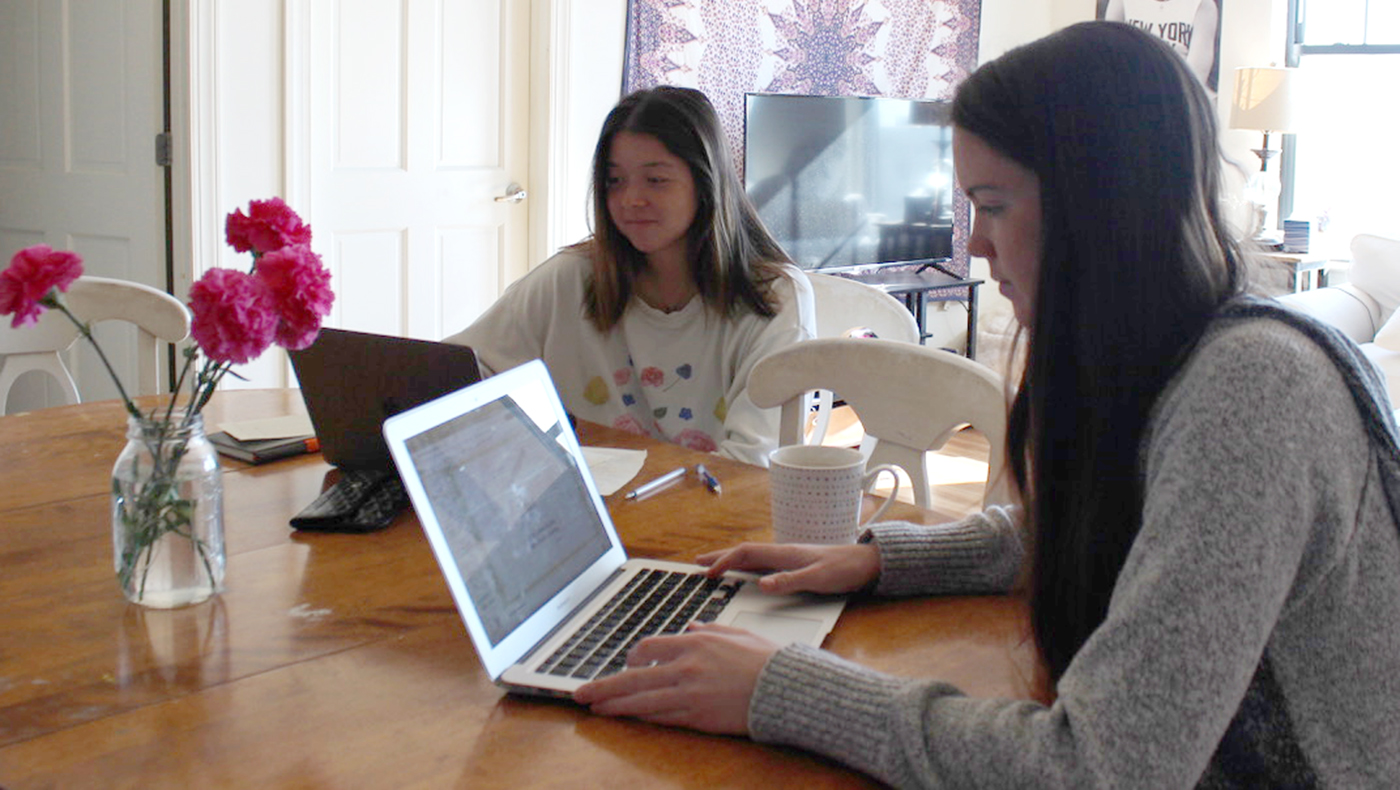When University of Delaware marketing professor Julia Bayuk had an idea for a project that would connect UD business students with UD international students, she didn’t realize that the students would be facing additional hurdles as a result of the coronavirus pandemic.
The project, which paired students from UD’s Alfred Lerner College of Business and Economics with students in UD’s English Language Institute (ELI), encouraged the business students to learn more about marketing products internationally by talking directly with students from various countries. Eventually, more than 40 students from 12 different countries matched with nearly 90 business students.
In this way, Bayuk said, students learned how to conduct a type of direct, primary-source research, and to gain insights they couldn’t find anywhere else.
“There’s a lot of information that marketing students can get from the library, Google, online databases and other resources,” Bayuk said. “But to really understand culture, how people shop, make decisions, what kinds of products they consider, it’s important to really talk to the locals. Since our students couldn’t travel to these countries, this gave them connections to international students from these countries. I also think it’s important for our students to get a global perspective and be able to better interact and try to better understand others who are different from them.”
Karen Asenavage, ELI associate director, said that the benefit to students was mutual, as ELI students had an opportunity to exercise their English skills through purposeful interactions with a wide range of students. This, Asenavage explained, is part of an ongoing relationship between ELI and the Lerner Colleges.
“Collaboration with departments across campus is a central focus of the ELI,” Asenavage said. “Now more than ever, embracing the international perspective with understanding is essential for UD students, as is understanding U.S. culture for international students.
“When Julia told me about her new course and the reasons why she wanted to develop it, we realized that this was again a perfect opportunity to collaborate,” she continued. “That so many students were interested and committed to being involved is evidence their desire to be fully engaged on campus.”
One such international participant, Umida Ruzbayeva from Kazakhstan, is part of the Lerner MBA’s Conditional Admission Program. She talked with her group about products and services that aren’t currently available in Kazakhstan, and how to make products more attractive to Kazakh consumers.
“The meeting was easy and engaging,” Ruzbayeva said. “It was interesting to compare the issues that we face in Kazakhstan but disappeared here, and vice versa.”
ELI alumna Adaeze (Daisy) Amanfo from Nigeria shared a similar experience. She and fellow student Zainab talked with a team about marketing beauty care products that are currently hard to find in Nigeria.
“My friend and I met with a group and had a really good, successful and interactive session,” Amanfo said. “During our discussion, we spoke about how the Nigerian tradition and culture plays a huge role as to who we are as citizens or people.”
Amanfo also talked about the challenges that the groups faced as the coronavirus pandemic began to affect campus activities. As students had to leave campus for safety reasons, Amanfo said, the students had to move their discussions into the virtual world.
Hannah Fuss, a senior double majoring in international business and operations management, also discussed the transition to online formats in completing this project. Her team focused on introducing Coca-Cola subsidiary Honest Tea to the Brazilian market.
The most important lesson Fuss learned during this time? “Mind over matter,” she said.
“This situation is not ideal for anyone, but staying positive and healthy has had direct impacts on my motivation to succeed in my courses,” she continued. “Although this is a difficult and upsetting situation, these experiences while working with teams virtually have challenged us and will further strengthen the skills we will need in the professional world. Businesses are increasing their international business methodologies, and understanding how to work on a team virtually will only benefit us in the near future.”
Fuss also happens to live with one of her teammates on this project, marketing major Cecilia Iverson. Fuss said that the two loved working together throughout the experience, despite the unique circumstances.
Fortunately, it seems that students’ flexibility and positive attitudes resulted in excellent final projects. Bayuk said that her students adapted “surprisingly well” to moving the project meetings and presentations online.
“I think that this project satisfied two goals,” Bayuk said. “It gave the students in the international marketing class an opportunity to do research about another country and learn from students from that country, and it encouraged them to think about a gap in the market in the country they’re studying and how to satisfy that gap with a new product or service that would appeal to that market.
“But on a more personal level, I am hoping it gave them an appreciation for a different culture,” she continued, “and encouraged these two often seemingly different bubbles that our international and domestic students function in on a daily basis to come together.”




